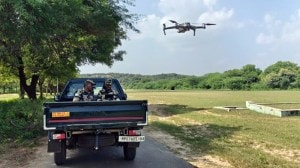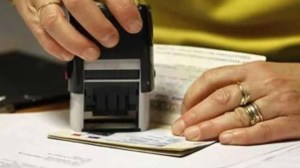Ex-militants and their law of diminishing returns
SRINAGAR, DECEMBER 8: Six years ago, they were the Army's valuable asset. Working largely in the shadows, Ikhwans--or surrendered militant...

SRINAGAR, DECEMBER 8: Six years ago, they were the Army’s valuable asset. Working largely in the shadows, Ikhwans–or surrendered militants–were of great help in tracking down militants in the Valley. They knew the hideouts and the terrain. Soon, they began getting regular salaries but over the years as their numbers have grown, they are now increasingly becoming a liability.
In fact, today, there are many who resent them. Local residents view them with deep suspicion–some even with contempt–for switching sides. Mainstream parties sneer at their recent attempts to jump into electoral politics. Even the Army admits their limited use.
Says a Brigadier: “An Ikhwan’s relevance as a spotter of fellow militants is limited, following which he is a liability. Perhaps, all able-bodied men among them could be inducted into the security forces after a thorough screening.”
Whether that’s a good idea isn’t so clear. For, although the Ikhwans (the term comes from Ikhwan-ul-Muslimeen, which was in fact the students’ wing of the J&K Liberation Front) are exclusively on the Army’s payroll, almost all security forces operating in the Valley are already using them in some form or the other.
It’s estimated that there are close to 3,000 of them operating in the Valley. In fact, they have been a cause of a rift between different security agencies. Until recently, the Army paid an Ikhwan a monthly salary of Rs 3,000 plus a kit allowance of Rs 1,500 and a Rs 5-lakh insurance cover. But surrendered militants working for the J&K Police–known as Special Police Officers–got only Rs 1,500 per month. When they protested, at a recent meeting it was decided that Ikhwans get a uniform salary of Rs 1,500 per month.
Several cases of extortion, looting and harassment by surrendered militants have been reported. Since some of them surrendered to avenge excesses by fellow-militants, they have been settling personal scores. “If they are allowed to function unchecked, they could create havoc in the local society,” says a senior police officer. To prevent this, admits an Army officer in Anantnag, “Ikhwans now function only with regular troops and not allowed to operate independently.”
The Ikhwans, however, don’t think their utility is any less now. Says Liaqat, the Ikhwan commander in Anantnag: “Since our boys know the whole area and its people well, they are a big help in preventing innocents from dying during encounters.” He recalls how Ikhwans saved villagers who were caught in the crossfire in a seven-day long encounter between security forces and militants. Liaqat, who is Rs 12,000 per month, stays in a well-protected housing colony in Anantnag.
Given their proximity to the Army, Ikhwans are also being targeted by militants. Last week alone there were two attacks in Baramulla district. In one, militants stormed the house of a senior counter-insurgent leader-turned-politician in Arampora village killing his two police guards. The same day, they attacked the house of senior vice president of Awami League in Bandipora area of North Kashmir and killed two policemen. A few days earlier, a surrendered militant was killed in the same district. “We know we are leading a dangerous life, but it’s better than living in the hills and the forests,” says a surrendered militant.
The Ikhwans, armed with official sanction and protection, were much sought after by parties during elections. This prompted many to contest polls themselves. So you have Kukka Parrey, who floated his own political party Awami League, as an MLA from Sonawar. Javed Shah, formerly of the Al-Jehad, joined National Conference and is a member of the state legislative council. Another militant of Muslim Mujahideen (now called Peoples’ Patriotic Front) contested the Lok Sabha elections from South Kashmir but lost.
Security officials admit that Ikhwans have become yet another element in the Valley’s turbulent politics. “We know the dangers of pandering to these elements but without them we are totally at sea in the Valley,” says an Army Major.
Photos





- 01
- 02
- 03
- 04
- 05


























